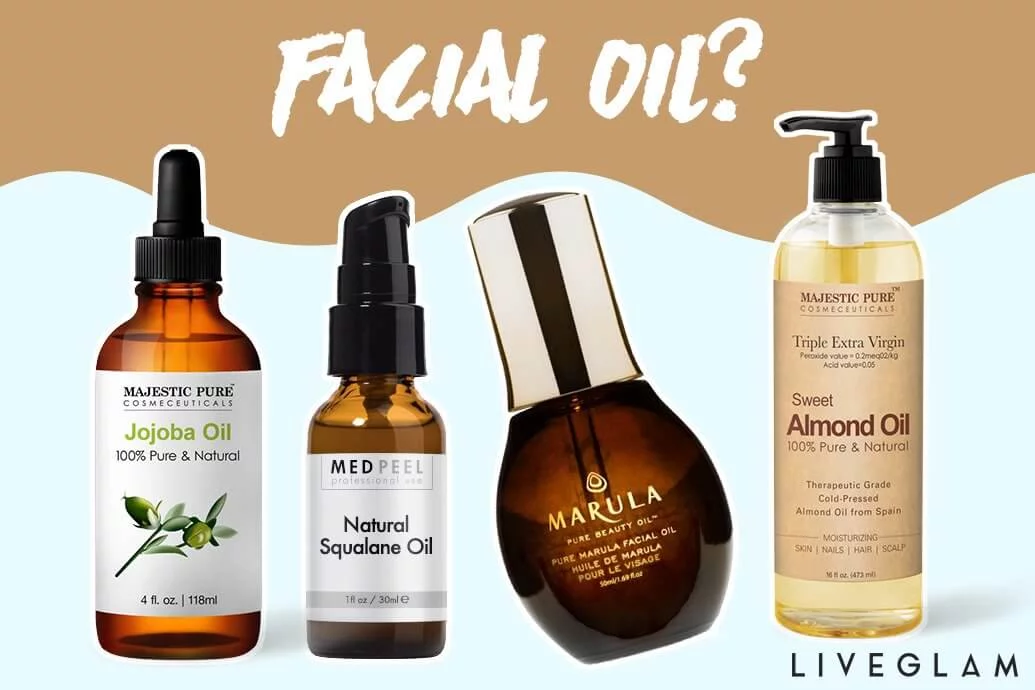Should You Really Be Using Facial Oil?
As someone who has been through the nightmare of acne, I understand the fear of oil…all oil. Especially oil on the face. It just seems counterintuitive!
But in recent years I have discovered how nourishing it can be, even when my acne decides to turn up and say hello. In fact, I found oil to be a saving grace for my acne scars. Hey, they’re a part of my face and they give me character…but it’s still nice to tone them down a bit to make fresh-faced days a little clearer.
Recently, the allure of facial oils has really taken place in the beauty sphere, helping to shatter some of the fear. High-end brands have made skincare, especially oil, seem even more luxurious, desirable, and glamorous with their gorgeous packaging and alluring ingredients. Luckily, you don’t actually have to spend big bucks to get great oils, as there are plenty of naturally-sourced, high-quality pure oils with small price tags to choose from.
But back to the benefits of facial oil! Oil helps to lock moisture into the skin and to create a barrier to protect the skin from moisture loss and drying environments. Plus, they feel and smell amazing on clean, just-washed skin. Some oils also have antibacterial properties and skin-protecting antioxidants, which makes them great for acne-prone skin.
Here’s a helpful breakdown of using facial oils according to your skin type…
1. Dry skin
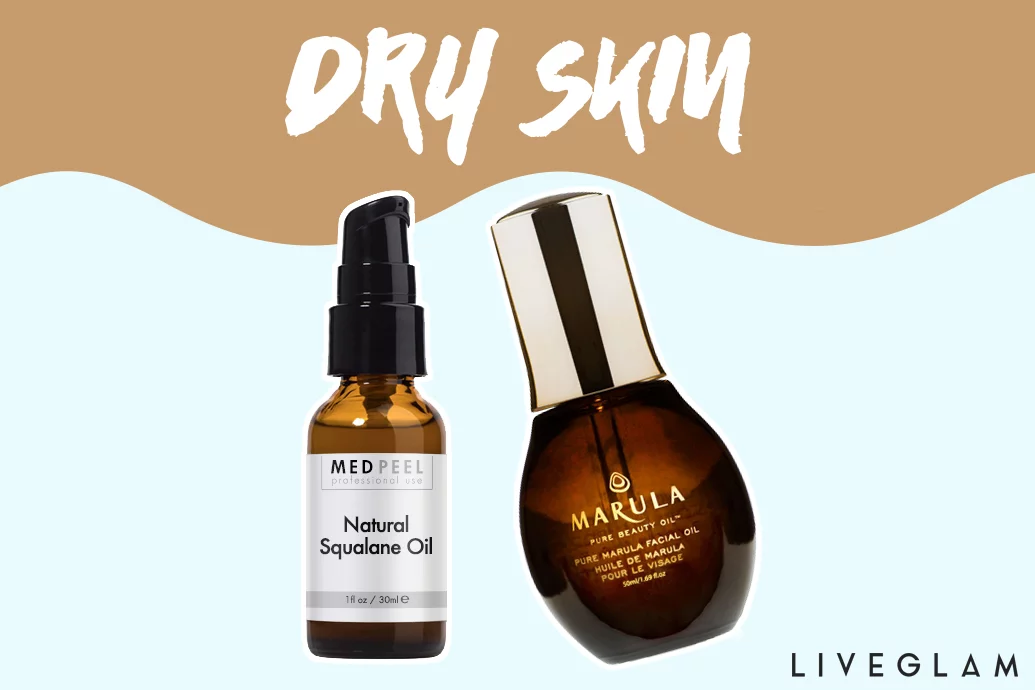
Of course, dry skin needs all the moisture and nourishment it can get, and oil is a necessary layer in the routine of a dry-skin owner. Treat tight, uncomfortable skin with an oil such as marula or squalane.
- Marula oil: protects the skin from environmental damage, reaches deep into the skin to lock in moisture
- Squalane: already produced by the skin but needs a top-up for dry skin, can be sourced from a variety of places including plants, extremely hydrating and prevents moisture loss
2. Oily or acne-prone skin
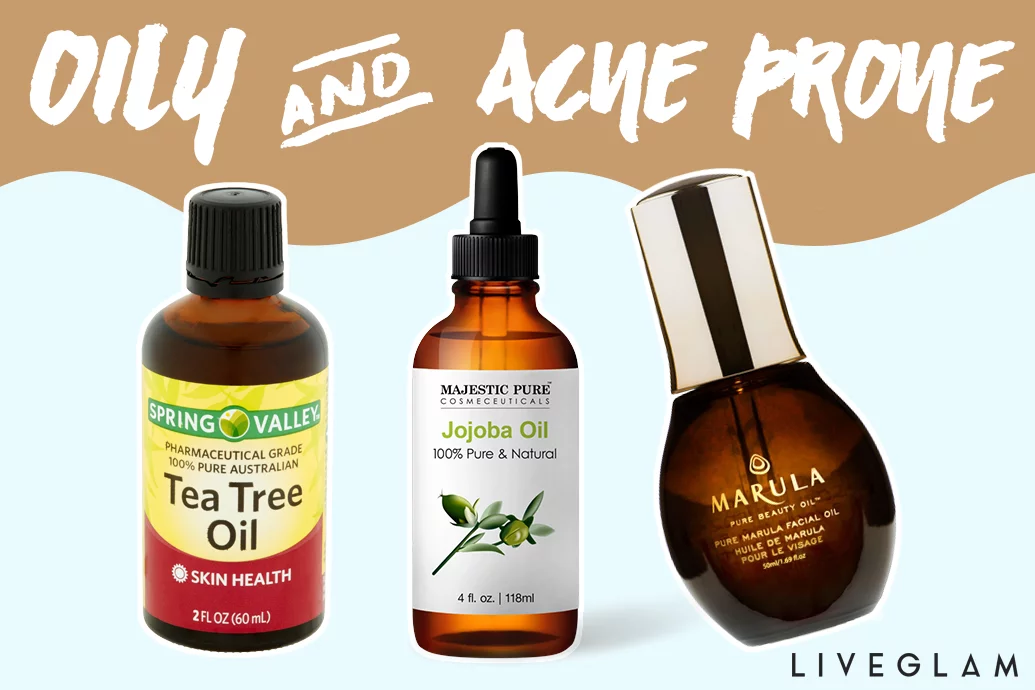
If you completely strip your skin of moisture by using harsh cleansers, sting-inducing toners, and super-light moisturizers, then your skin is going to panic and feel as though it needs to add more oil. This is bad news for those with already oily or acne-prone skin. Yes, you need to clean the skin thoroughly and ensure all traces of dirt and makeup are gone, but you also need to nourish the skin with the moisture it craves. Oils such as jojoba and marula are non-comedogenic, which means they nourish the skin without clogging the pores.
- Jojoba oil: kills bacteria, helps to drive excess oil out of the pores, moisturizes without clogging
- Tea tree oil (for treating active pimples): dries pimples and kills bacteria quickly
- Marula Oil: anti-microbial for combating acne-causing bacteria, hydrates without clogging
3. Sensitive skin
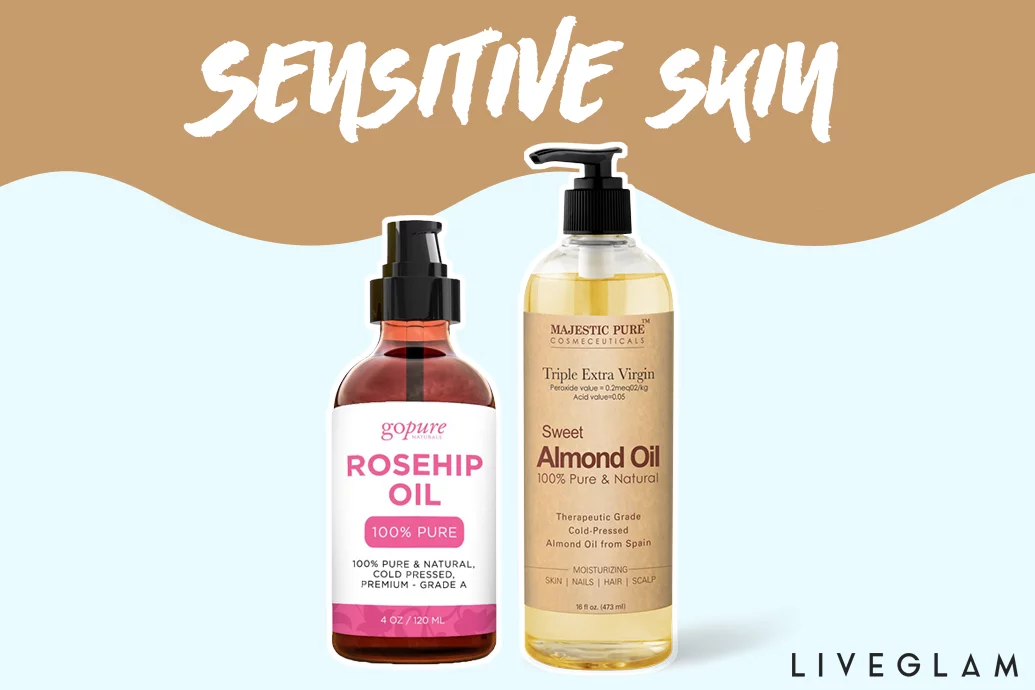
Sensitive skin should be treated carefully, with products totally free of fragrances and harsh ingredients. Sweet almond oil is a lovely choice for sensitive skin, as well as rosehip oil.
- Sweet almond oil: anti-inflammatory, soothes dry, itchy and irritated skin, gentle
- Rosehip oil: full of fatty acids to plump dry and sensitive skin, gentle and nourishing
4. Acne-scarred skin
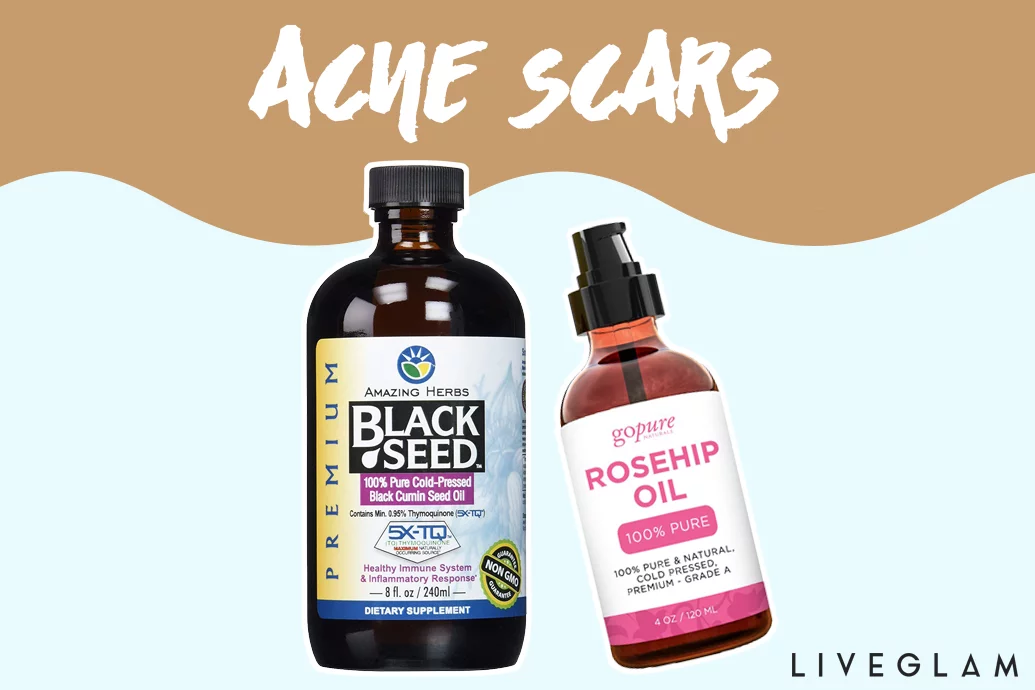
Acne scars do fade over time, but we can help the process along by applying a facial oil daily. Rosehip oil and black seed oil are both known to be wonders at evening out skin tone and toning down the appearance of scars.
- Rosehip oil: hydrates without clogging, helps to fade scars and pigmentation
- Black seed oil: contains vitamin A to help reduce dark spots, anti-inflammatory and contains antioxidants
I recommend that you press your facial oil into damp skin, right after cleansing and toning. Don’t tug or rub the skin too hard, instead try to really press and pat the oil into the areas you most want improvement. You could also add a few drops to your moisturizer in the morning if you don’t have time for two separate applications. I must admit, I go a little overboard with my facial oils at night, probably applying far more than I need, going to bed looking like a total grease bomb. But I just love the feeling of waking up in the morning with super hydrated skin and fewer dry patches. It all depends on your skin type and your personal preferences. Next time you’re at your local drugstore or beauty store, check out a few options and ask for some samples to try out.
Good luck and good skin!

